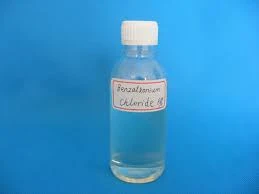anionic polyacrylamide
Anionic polyacrylamide (APAM) is a water-soluble polymer widely recognized for its versatile applications in various industries. As a synthetic polymer derived from acrylamide, anionic polyacrylamide features anionic charges that impart enhanced stability and effectiveness in various formulations, making it particularly beneficial in fields such as water treatment, agriculture, and oil recovery.
One of the primary uses of anionic polyacrylamide is in water treatment processes. APAM functions as a flocculant, a substance that helps separate suspended particles from water, thereby improving water clarity and reducing turbidity. When added to wastewater, APAM facilitates the agglomeration of small particles into larger flocs, which can then be more easily removed. This process is crucial for municipal waste management facilities, industrial plants, and even in managing drinking water quality.
In agriculture, anionic polyacrylamide serves as a soil conditioner. It enhances soil structure, increases water retention, and reduces soil erosion. When applied to fields, it can aid in preventing runoff and facilitating the infiltration of water, which is particularly beneficial in arid and semi-arid regions where water is scarce. This capability not only aids in better crop yields but also promotes sustainable farming practices by conserving water resources.
anionic polyacrylamide

Additionally, the oil and gas industries utilize APAM for enhanced oil recovery (EOR) processes. By increasing the viscosity of the water used in oil extraction, APAM helps to improve the efficiency of oil recovery processes. It can reduce the mobility of water, allowing for a more effective displacement of oil, ultimately leading to increased yield from oil reservoirs.
Despite its beneficial properties, the use of anionic polyacrylamide must be carefully managed due to potential environmental and health concerns. Proper handling and disposal are essential to prevent contamination of water sources, as acrylamide is classified as a toxic compound. Nevertheless, ongoing research and development are focused on creating safer alternatives or modifications of APAM that retain its beneficial properties while mitigating risks.
In conclusion, anionic polyacrylamide is an essential polymer with significant applications across multiple sectors. Its effectiveness in water treatment, agricultural enhancement, and oil recovery underscores its importance in promoting efficiency and sustainability. As industry practices evolve, the development of safe and effective methods for the application of APAM will continue to play a crucial role in various technological advancements.
-
lk-319-special-scale-and-corrosion-inhibitor-for-steel-plants-advanced-solutions-for-industrial-water-systemsNewsAug.22,2025
-
flocculant-water-treatment-essential-chemical-solutions-for-purification-processesNewsAug.22,2025
-
isothiazolinones-versatile-microbial-control-agents-for-industrial-and-consumer-applicationsNewsAug.22,2025
-
scale-inhibitor-key-solutions-for-water-system-scale-preventionNewsAug.22,2025
-
organophosphonates-versatile-scale-inhibitors-for-industrial-water-systemsNewsAug.22,2025
-
scale-and-corrosion-inhibitor-essential-chemical-solutions-for-water-system-maintenanceNewsAug.22,2025





